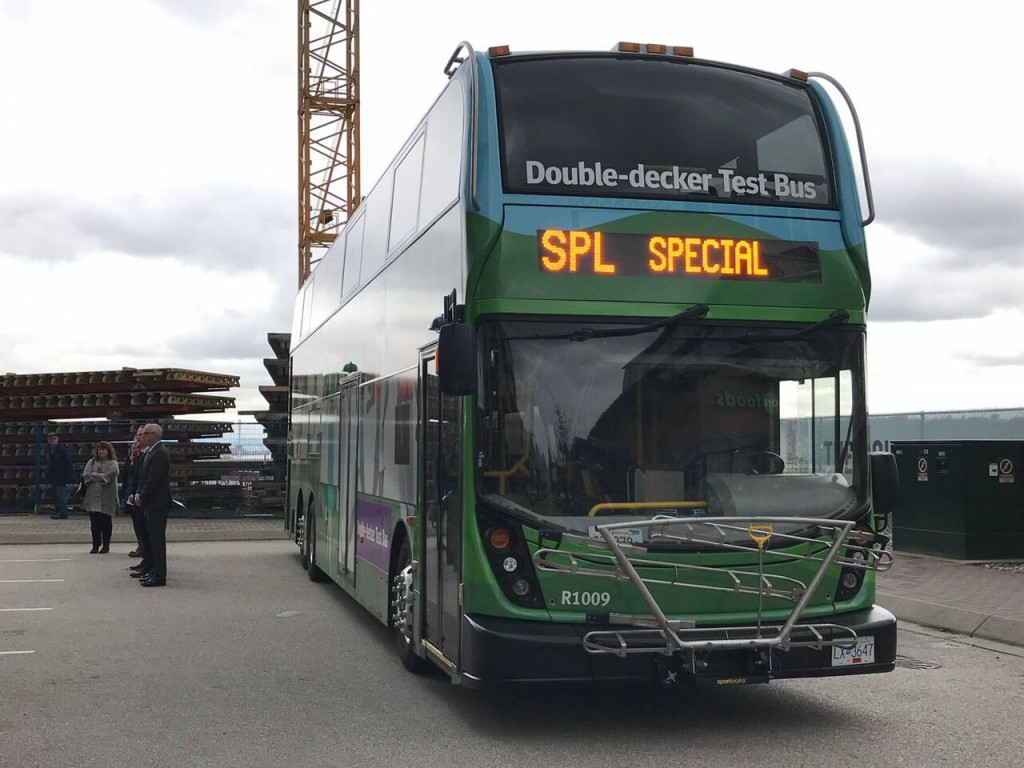
Buses will run routes in Lower Mainland for three-month trial
By Greg Waldock, Staff Writer
TransLink has received the first of its new double-decker buses and launched a three-month tryout for routes across the Lower Mainland.
Two double-decker buses were provided free of charge for the trial by the manufacturer, Alexander Dennis, according to a report by the Vancouver Sun. These new buses have almost twice the seating of regular buses, making them massively useful for crowded routes that have started appearing over the last few years. The routes involved will be the 301, 311, 351/354, and the 601/602 all to Bridgeport Station, and the 555 to Lougheed Station. Other routes are also being considered for the double-decker buses, focusing on the massive traffic increases coming from Surrey.
Increased ridership from the Lower Mainland into Vancouver is one of the major motivating factors for the change, according to an information bulletin on the TransLink website. TransLink is focusing heavily on increasing transit service for Surrey and Langley, with the new bus-fleet changes being only part of the initiative; a controversial new Light Rail Transit system is also moving forward, though a full SkyTrain extension is part of the discussion as well. The age of many of the buses also presented an opportunity, as some are almost 20 years old, and replacing them will allow the city to experiment. However, not all busy routes will have these new buses—the 99 B-Line to UBC, for example, will continue to use articulated buses as they are better suited for the frequent stops that makes the B-Line so busy, said TransLink CEO Kevin Desmond in a CBC News report.
TransLink and Coast Mountain officials said that the buses are built to fit underneath obstacles. Over the last several months, certain buses were equipped with special rigging to test for problems with tree branches, overpasses, and tunnels.
According to a report in the Vancouver Sun, Desmond said that while double-decker buses are “new for TransLink”, they are successfully and safely “operated all around the world”. Other safety concerns include a lack of security on the top floor and the top-heavy nature of double-decker buses being harder to control, both of which are being examined as part of the three-month trial.
A total of 32 double-decker buses have been ordered, with 27 of them replacing existing and aging buses, and the remaining five expanding the bus fleet, according to a report in the Vancouver Sun. TransLink is applying to fund these new buses with federal gas tax money, and their total request for the year is 180 new transit vehicles, which will include conventional and articulated buses, updated community shuttles, and new electric battery buses. The new vehicles are expected to arrive throughout 2018 and 2019, with double-decker bus service opening with a staggered release throughout both years.
